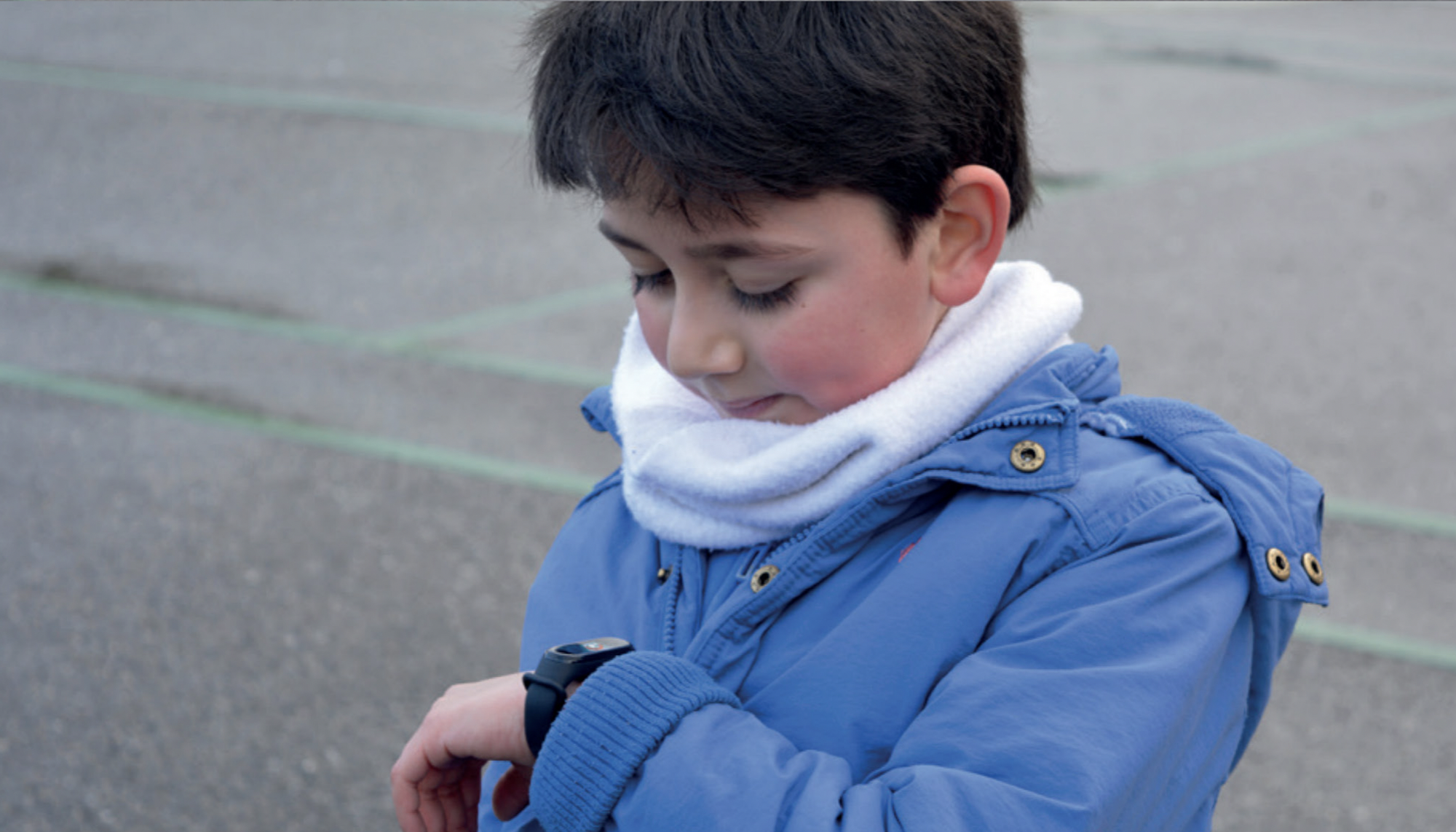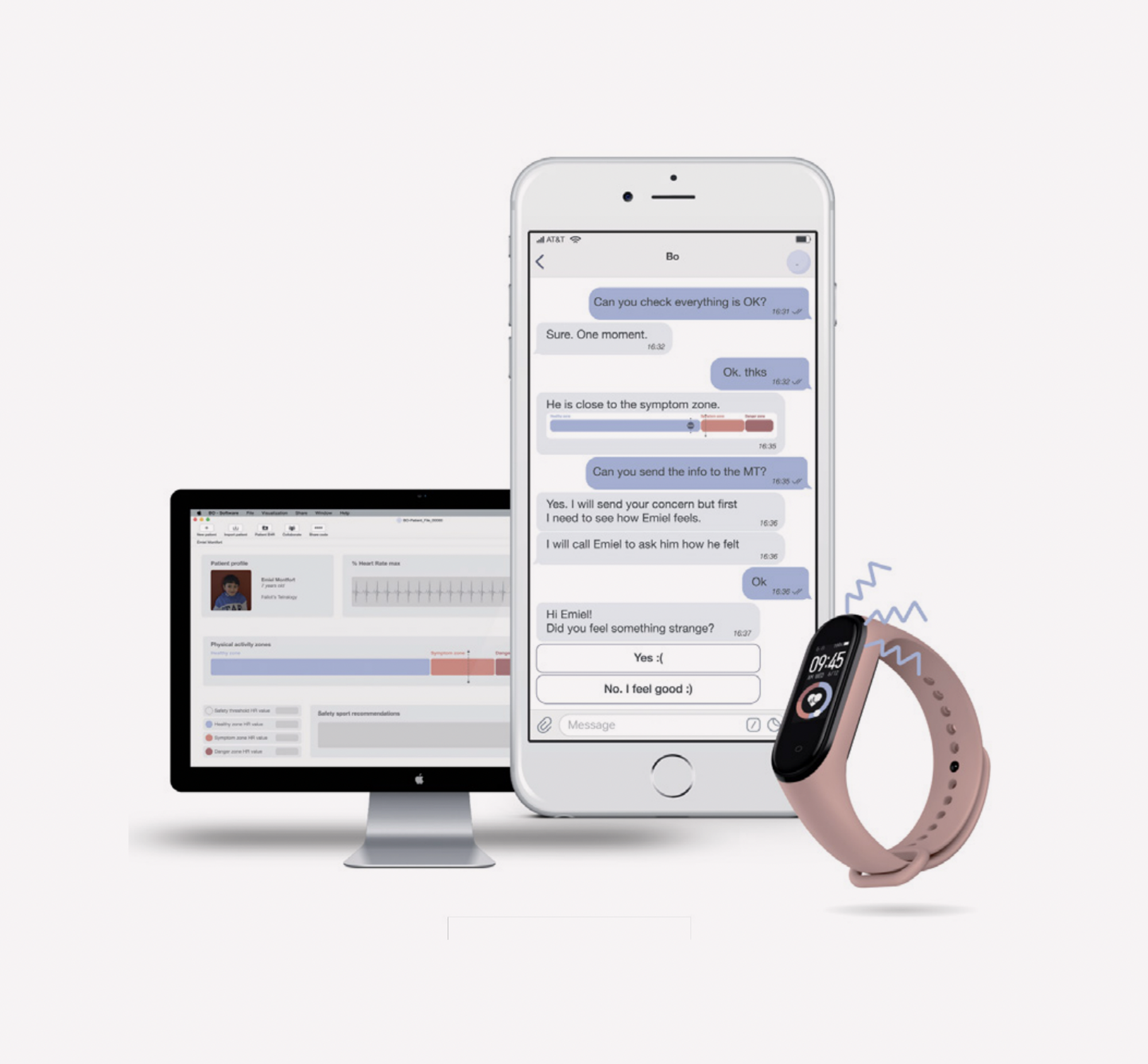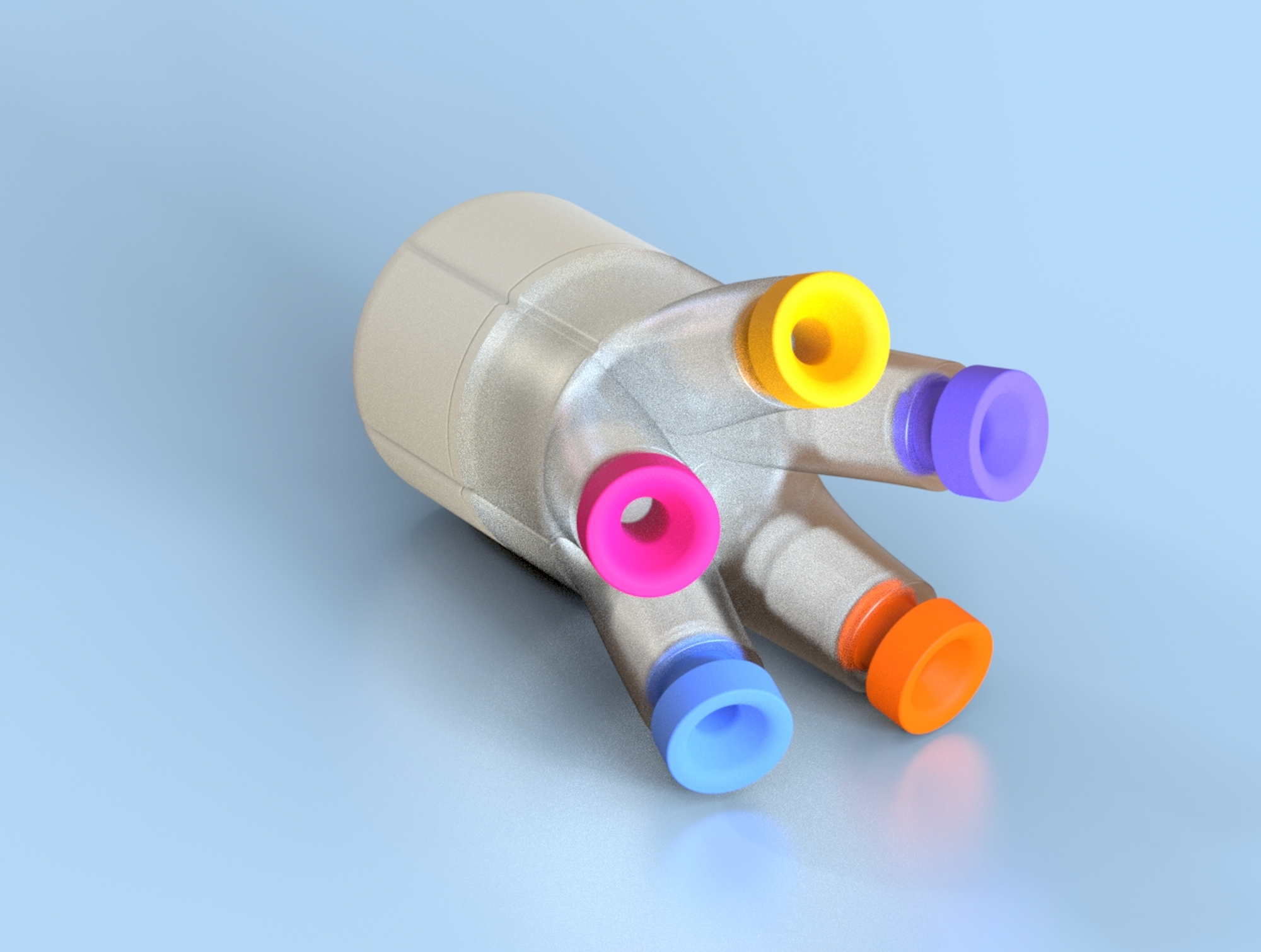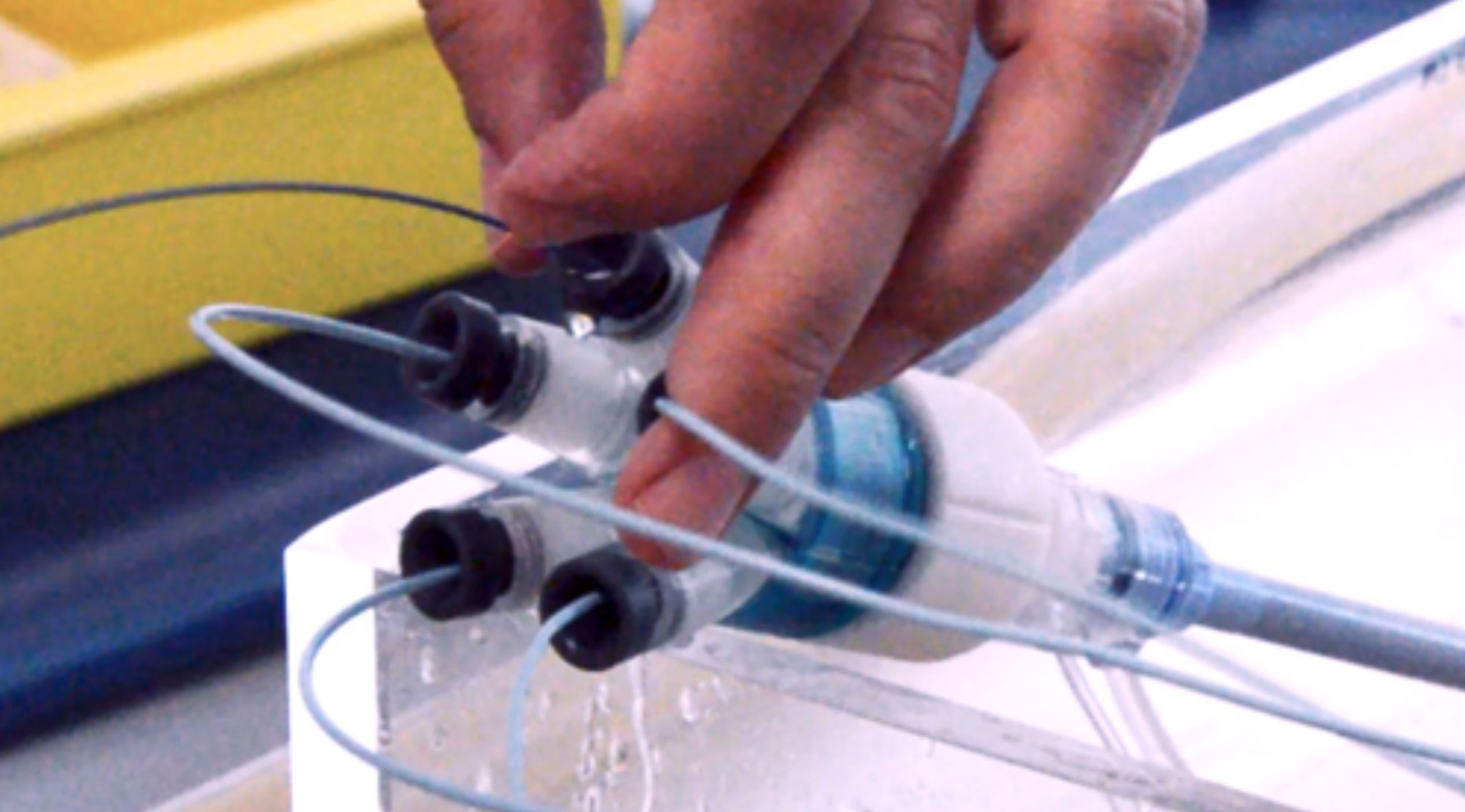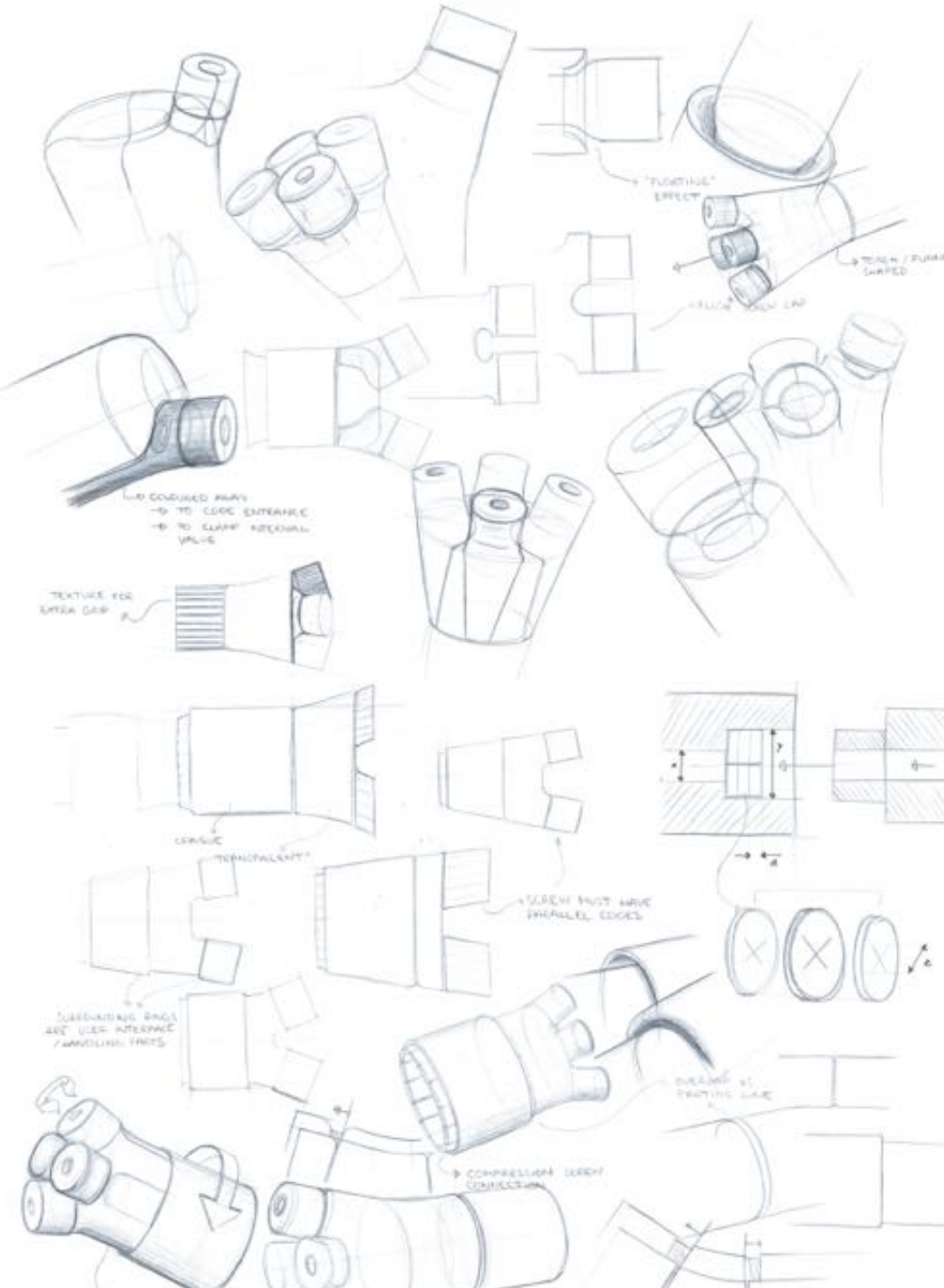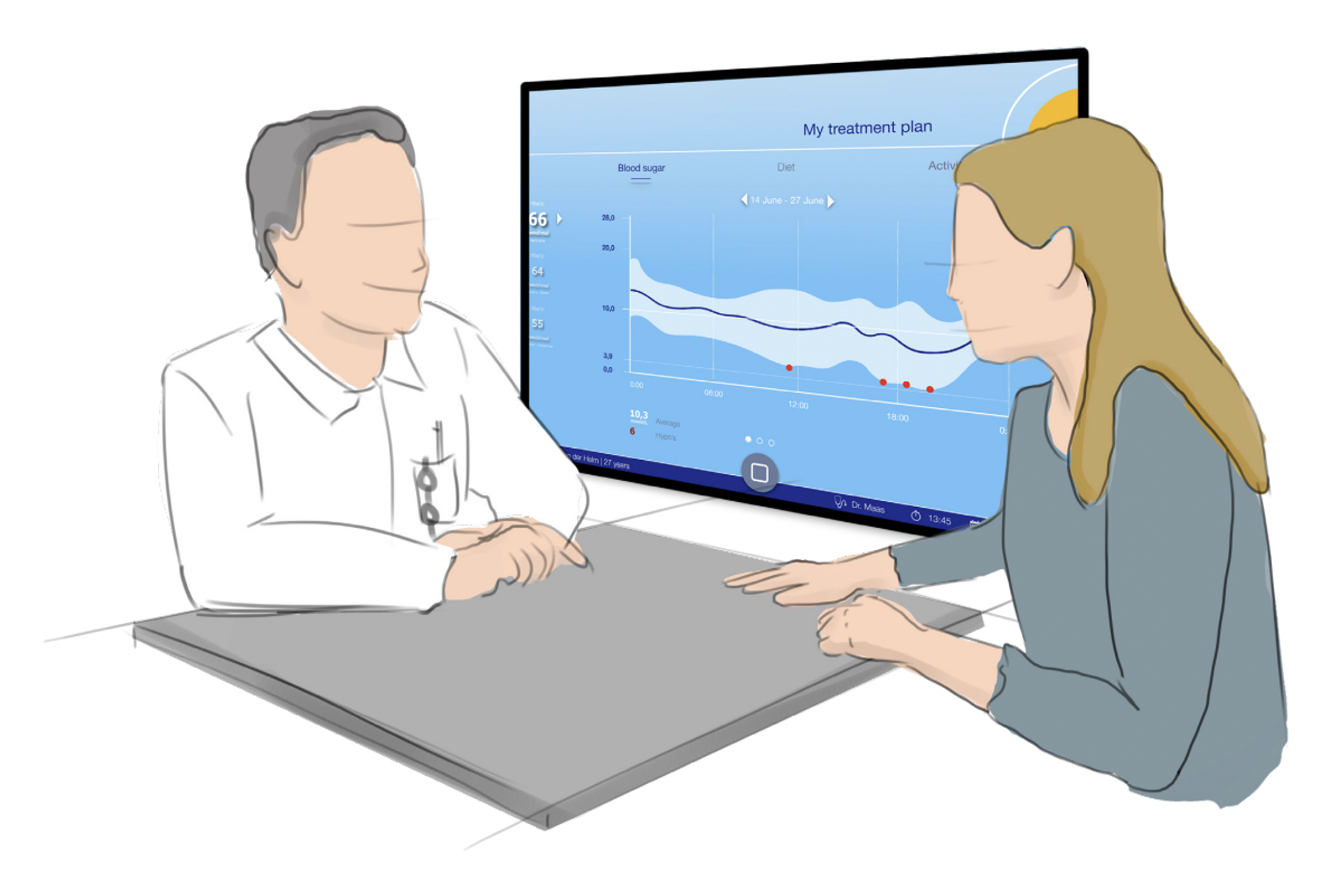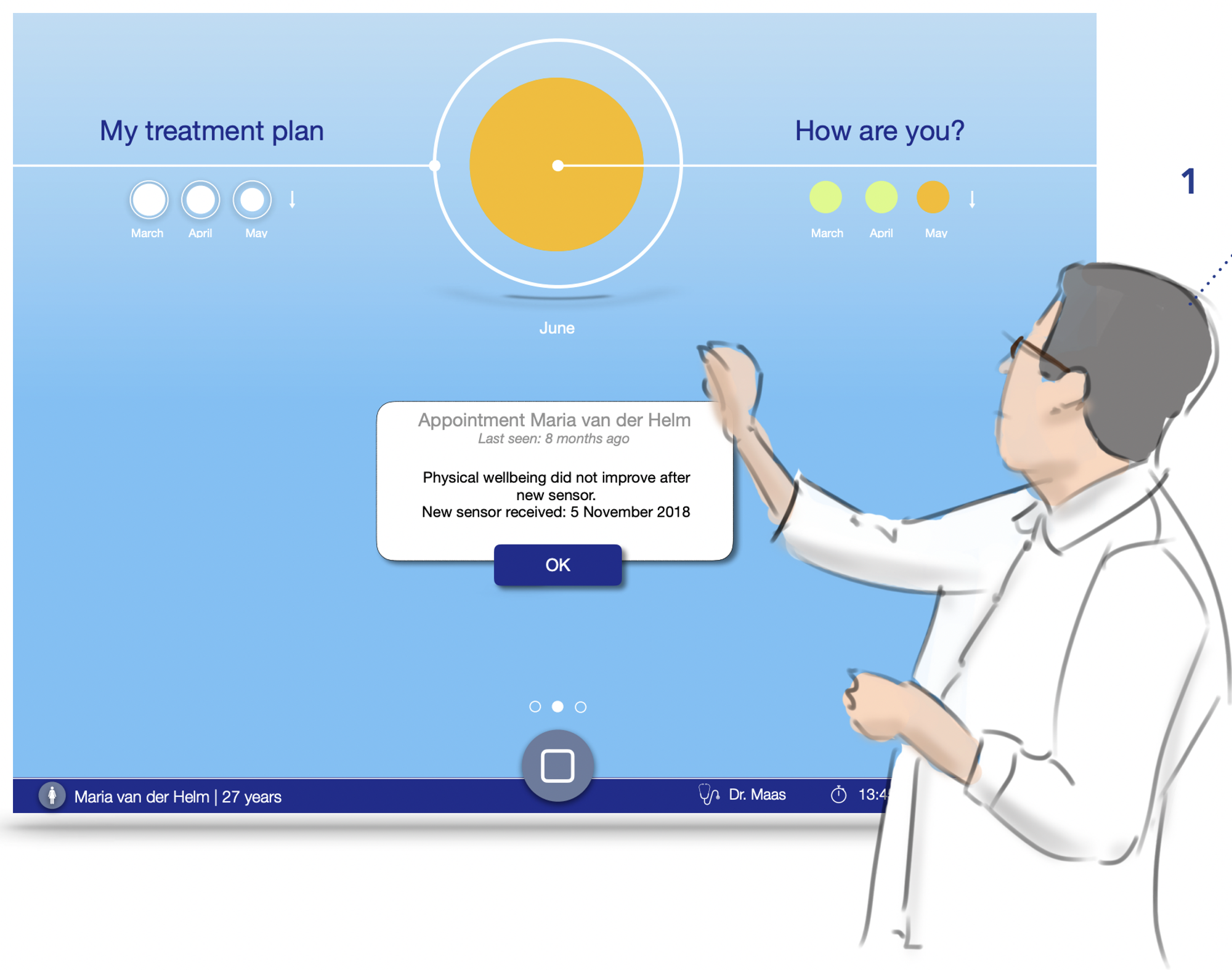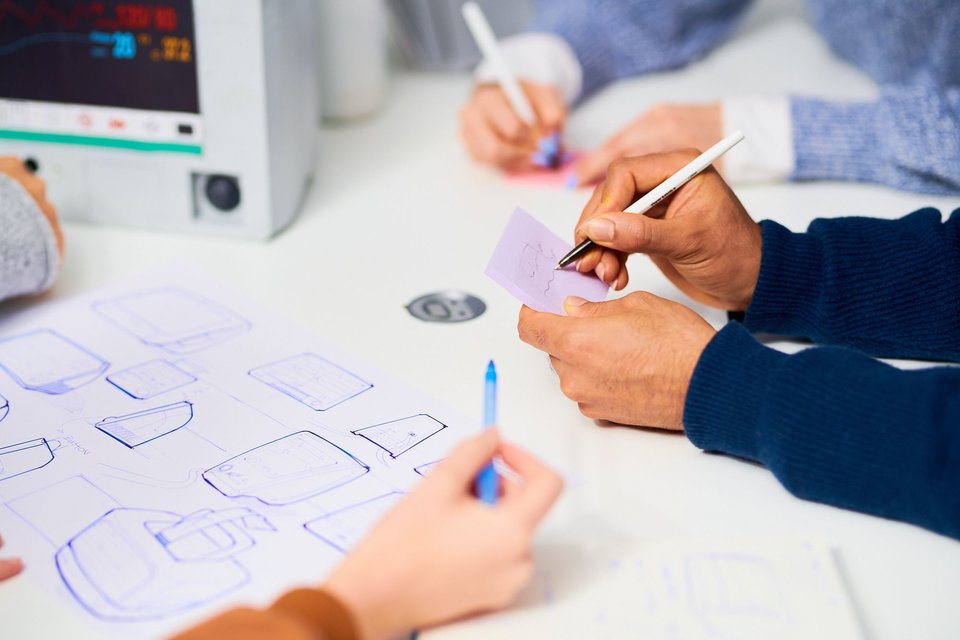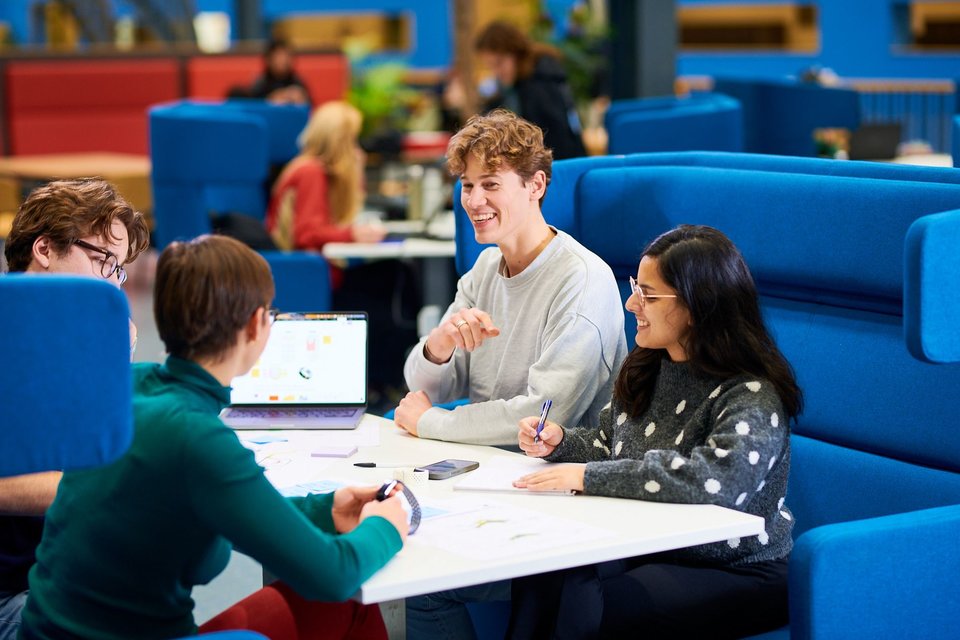Medisign Specialisation
Medisign explores how to design products, services and systems to solve complex health challenges
As we face increasingly complex health challenges, there is an urgent need to rethink the fundamentals of our healthcare ecosystems. The Medisign Master's Specialisation at TU Delft IDE takes a transdisciplinary approach, equipping you with the tools and knowledge necessary to design, prototype and test innovative products, interactions, services and strategies that can realise a healthier future for individuals and societies.
Since 1998, the Medisign specialisation at TU Delft has evolved from the design of physical healthcare products to the design of interactions, services and systems. Students explore methodologies such as patient journey mapping, work on real-life projects with healthcare partners and gain insights from researchers developing novel design approaches. Over two years they build a health-related design portfolio, understanding the complexities of healthcare and contributing to creative solutions.

The Specialisation
Use the tabs below to read more about the Curriculum, Electives, People, Information for Companies and Frequently Asked Qustions (FAQ)!

Medisign is a specialisation available to students enrolled in one of the following Master's programs in Industrial Design Engineering at TU Delft: Integrated Product Design (IPD), Design for Interaction (DfI), or Strategic Product Design (SPD). The Medisign Specialisation curriculum consists of three main components that are integrated into your Master's degree program:
-
As part of the Medisign curriculum, you'll select a health-related case for one of the design studios offered in your master‘s program, often in partnership with a real-world organization. This project enables you to apply your Master's knowledge directly to the healthcare ecosystem, bridging theory with design practice.
By collaborating with external partners, you'll gain valuable experience in communication, problem-solving, and project development. The design studio project ensures that you graduate with practical experience applying your design skills in the healthcare sector. The design studio has a 10 ECTS study load. The design studios offered in the different Master programs are:
- MSc Design for Interaction (DfI):
- Design Studio 1: Dare to Design Studio | Semester 1
Design Studio 2: Depending on the theme you select, the offered design studios are | Semester 2
Theme - Design for Emerging Sustainable Futures | Speculative Design Studio *
Theme - Design for Human Interaction | Multi-sensory Design Studio
Theme - Design for Societal Innovation | Systemic Design Studio (shared with MSc Strategic Product Design)
- Design Studio 1: Dare to Design Studio | Semester 1
- MSc Strategic Product Design (SPD):
- Design Studio 1: Products Now Studio | Semester 1
Design Studio 2: Product Futures Studio | Semester 2
- Design Studio 1: Products Now Studio | Semester 1
- MSc Integrated Product Design (IPD):
- Design Studio 1: Strategic Design Studio | Semester 1
Design Studio 2: Depending on the theme you select, the offered design studios are | Semester 2
Theme - Strategic Design for Technology-enabled Innovation | Tech-enabled Innovation Studio
Theme - Strategic Design for Social and Sustainable Innovation | Systemic Design Studio (shared with MSc Strategic Product Design)
- Design Studio 1: Strategic Design Studio | Semester 1
- MSc Design for Interaction (DfI):
-
To personalise your educational journey, you must complete 2 electives, each worth 5 ECTS. One of these electives should be chosen from the Medisign electives. These electives allow you to explore the intersection of design and health in greater depth. You can also choose a health-focused (research) internship as an elective to gain practical experience select one of the program electives with a health topic, or opt for an elective in another faculty or university. Please check with the Medisign coordinator before pursuing such an alternative elective or internship to ensure they are suitable for the Medisign curriculum.
A list of the Medisign Electives can be found here. For more information, please refer to the Study Guide. -
The culmination of the Medisign programme is a 20-week graduation project focused on improving health through design. During this period, you'll work on a real-world design project under the guidance of two faculty mentors, often collaborating with an external partner company.
This final project allows you to apply the knowledge and skills gained throughout your studies in a practical context. Ethical considerations are paramount, especially when working with sensitive information or human subjects (e.g. discussing mental health with students or personal patient experiences with the elderly). In such cases, you must consult the Human Research Ethics Committee and follow the guidelines on the TU Delft website.
You can find graduation opportunities here (note these are not only Medisign opportunities), get inspiration from past projects showcased by Medisign graduates, or explore the focus areas of the Delft Design Labs.
A short description of the Medisign Electives can be found here. For more information, please refer to the Study Guide.
Medisign electives
-
Here, the skeleton is studied as a mechanical system, the form and function of points discussed, and the mechanical properties and functions of biological materials such as bone and skin are analysed.
-
When doing design research designers often come across psychological topics. Especially in healthcare related projects, designers can touch upon psychological topics such as motivation during rehabilitation, coping with stressful situations (decision for surgery), and medication adherence. Yet validated psychological methods (including questionnaires, patient-reported outcome measures, and experience measures) and models are not commonly embedded in the design process. Using validated questionnaires will help designers to execute high quality research and improve the reliability of their outcomes. Furthermore, knowledge of psychological models will help designers understand which psychological factors influence behavior and will inspire and guide them in their design process.
-
This master elective course focuses on the developments within the eHealth sector and enables students to gain more knowledge about this upcoming healthcare design field. Lectures will be provided by the members of the eHealth consortium within the IDE faculty and in collaboration with the Medical Delta (Leiden University Medical Centre and Erasmus Medical Centre Rotterdam). Topics include the range of eHealth research at our faculty (e.g. from patient apps to decision support systems to (physical) objects with intent to persuasive game design to designing digital applications for the elderly).
* For these electives, the assignment should have a medical focus.
Outside the Faculty IDE
Electives at other TU Delft Faculties can be taken if they are healthcare-related. Please consult with the Medisign coordinator before pursuing these electives to ensure they are suitable for the Medisign curriculum.
Outside the TU Delft
Electives at other universities in the Netherlands can be taken if they are healthcare-related. Please consult with the Medisign coordinator before pursuing these electives to ensure they are suitable for the Medisign curriculum.

We collaborate closely with companies, institutions, and NGOs, leveraging over 25 years of partnerships to develop design methodologies and tools for effective healthcare solutions. Partnering with Medisign means joining a collaborative network driving innovation, learning leading design methods, gaining new perspectives, and meeting researchers and future designers – all committed to shaping a healthier society. Companies can provide case studies for student group projects, offer internships or thesis assignments, participate in our Delft Design Labs, or work together with our leading IDE researchers. We are always looking for partners to drive change in the healthcare system. Contact us at Medisign-IDE@tudelft.nl to explore how you can be part of this mission.
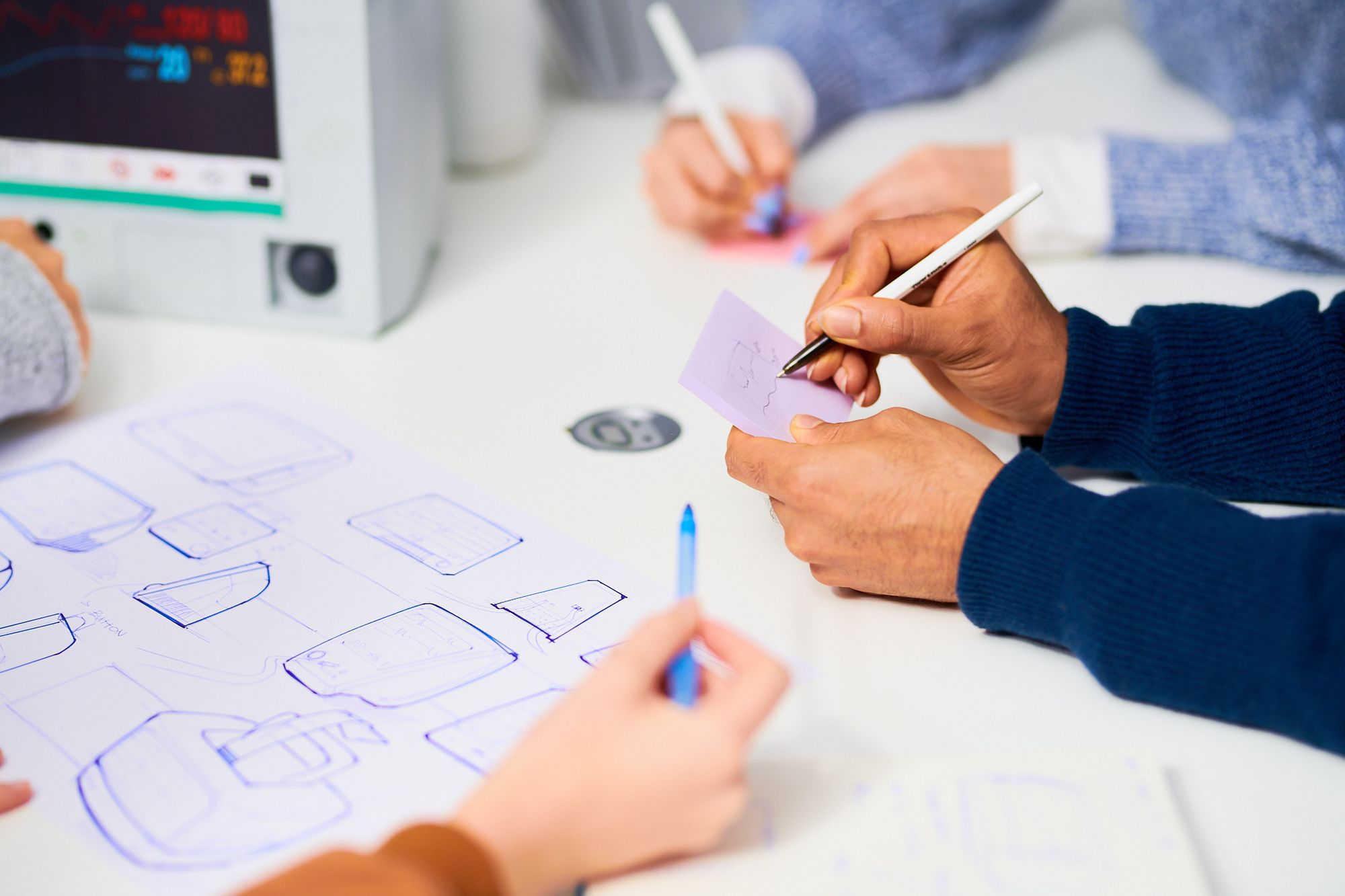
-
You must ensure that you meet the following requirements to qualify for the Medisign specialisation
- You must be enrolled in one of the Master’s programmes at the Faculty of Industrial Design Engineering at Delft University of Technology. Either Strategic Product Design (SPD), Design for Interaction (DfI) or Integrated Product Design (IPD).
- You must complete at least one Master-specific design studio with a healthcare focus of at least 10 ECTs.
- You must complete at least 2 Medisign electives worth at least 10 ECTS.
- You must complete a health-related graduation project.
If you meet the above requirements, you can fill in the form here to apply for Medisign.
-
The Medisign MSc Specialisation is an accreditation you will receive on your MSc diploma. We urge you to complete the form here as soon as you know you want to become part of the Medisign community. You will be added to the Brightspace Medisign environment and invited to all Medisign events.
-
You can choose to do a health-related case in one of thedesign studios in any one of the Master programs, either in semester 1 or semester 2. Ask the coordinator of the design studio about opportunities for a health-related case at the start of the course.
-
Yes, some electives from outside the IDE faculty can be considered. If you would like to do an elective from another faculty or another university in the Netherlands that has a healthcare focus, please contact us to discuss the possibilities.
-
Yes, a health-focused internship or research internship can also count as a Medisign elective. However, you need to make sure it is registered within the faculty as an official internship elective and contact the Medisign coordinator to make sure the internship brief qualifies as a Medisign focused internship.
-
Yes, however it is important to make sure that you have completed the credit requirements for the specialisation including the 10 ECTS for the Master-specific healthcare focused project in a design studio. Even if you are in your second year, you can fill in the form here to apply for the Medisign specialisation and you will be added to the Brightspace environment.
-
The Medisign specialisation offers a direction within your design career. You will be able to build a portfolio of healthcare-related design projects that showcase your experience in the real-life healthcare ecosystem. You will learn to speak the language of the healthcare sector in order to communicate effectively with them. You will expand your network through the various real-world projects.
Highlighted Projects
Use the tabs below to navigate through inspiring projects done within the Medisign Track!
Promoting exercise for kids with CHD by Hosana Morales Ornelas
Hosana Morales Ornelas aimed to help families with children who have Congenital Heart Defects (CHD) understand the safety boundaries of exercise.
Physical activity is essential for the development of children, but those with Congenital Heart Defects may suffer from a lack of opportunity to engage in physical activity, which can impede cognitive maturation, motor development, and autonomy. Parents may be overprotective of their children with CHD, preventing them from getting the exercise they need.
This study used Natural Language Processing techniques to analyze 305 online parental stories from various patient-association websites. The results showed the lifetime journey of these families, where an uncertain future evoked a constant search for symptoms. The findings were used during generative interviews with seven families with a CHD paediatric patient to understand the continuous search for symptoms during exercise. The combination of the insights gathered from interviews and the lifetime journey was presented to five medical team members to inspire a cocreation session.
The BO smart PSS aims to support parents and their children with a CHD to understand better the safety boundaries of exercise during free-living conditions. With an activity tracker and his nine system modules, Bo aims to guide the child through different heart rate zones defined by doctors. Furthermore, Bo has a conversational agent function where parents can send concerns to the medical team and find relief when seeing their child’s heart rate zone visualised in the physical activity path.
Gateway for aortic repair by Talitha Brenninkmeyer
Talitha Brenninkmeyer designed the Pentaport, a new gateway for complex endovascular aortic repair that minimizes blood leakage.
A ruptured abdominal aortic aneurysm (AAA) is a serious condition that can lead to death. Endovascular surgery is a common treatment for this condition, but it can require the use of multiple tools through a single introducer sheath. This can lead to blood loss for the patient. The aim of this project was to develop a new, safe gateway for complex endovascular aortic repair.
Talitha explored the medical background through literature research and information collected from various field experts through interviews, observations, co-creation and design evaluations. This group of experts covers backgrounds in design, medicine, engineering, materials, production, medical device development, and business. This resulted in a stakeholder map, journey maps and rapid explorative prototypes. Ideas were developed using How-To questions and co-creation brainstorms.
This resulted in the Pentaport, a new gateway for complex endovascular aortic repair that minimizes blood leakage by splitting the sheath's central lumen into five separate, diverging tool entrances, each with its own valve. A leakproof ‘plug & screw’ connection facilitates safe and easy fastening to existing sheath hubs, ensuring optimal closure around an introduced tool, even after repetitive movement.
The consultation of the future by Hanneke van der Velden
Hanneke van der Velden proposes a tool to make the communication between patients and specialists more emphatic in the digital world of 2030.
The current healthcare system is not meeting the needs of patients in the on-demand society we are living in. The Erasmus MC wants to improve the patient experience by giving more personalised care. However, there are many barriers to this, such as the lack of knowledge around a disease and the lack of personalisation in the consultation. This project aims to explore consultation experience in the future context of 2030.
In this project, the current barriers of positive patient experience, before, during and after the consultation, are defined by an extensive literature and user study. Followed by an exploration of the future context of 2030 and an interaction vision for 2030 based on the analysis and the personal values and beliefs of Hanneke.
The proposed concept is a patient portal that aims to improve the communication between patients and specialists. The portal consists of three elements: a knowledge base, a data tracking system, and a consultation preparation tool. The knowledge base provides patients with personalised information about their condition, the data tracking system tracks the patient's data to provide more personalised care, and the consultation preparation tool prepares the consultation to start the conversation on the right foot.

